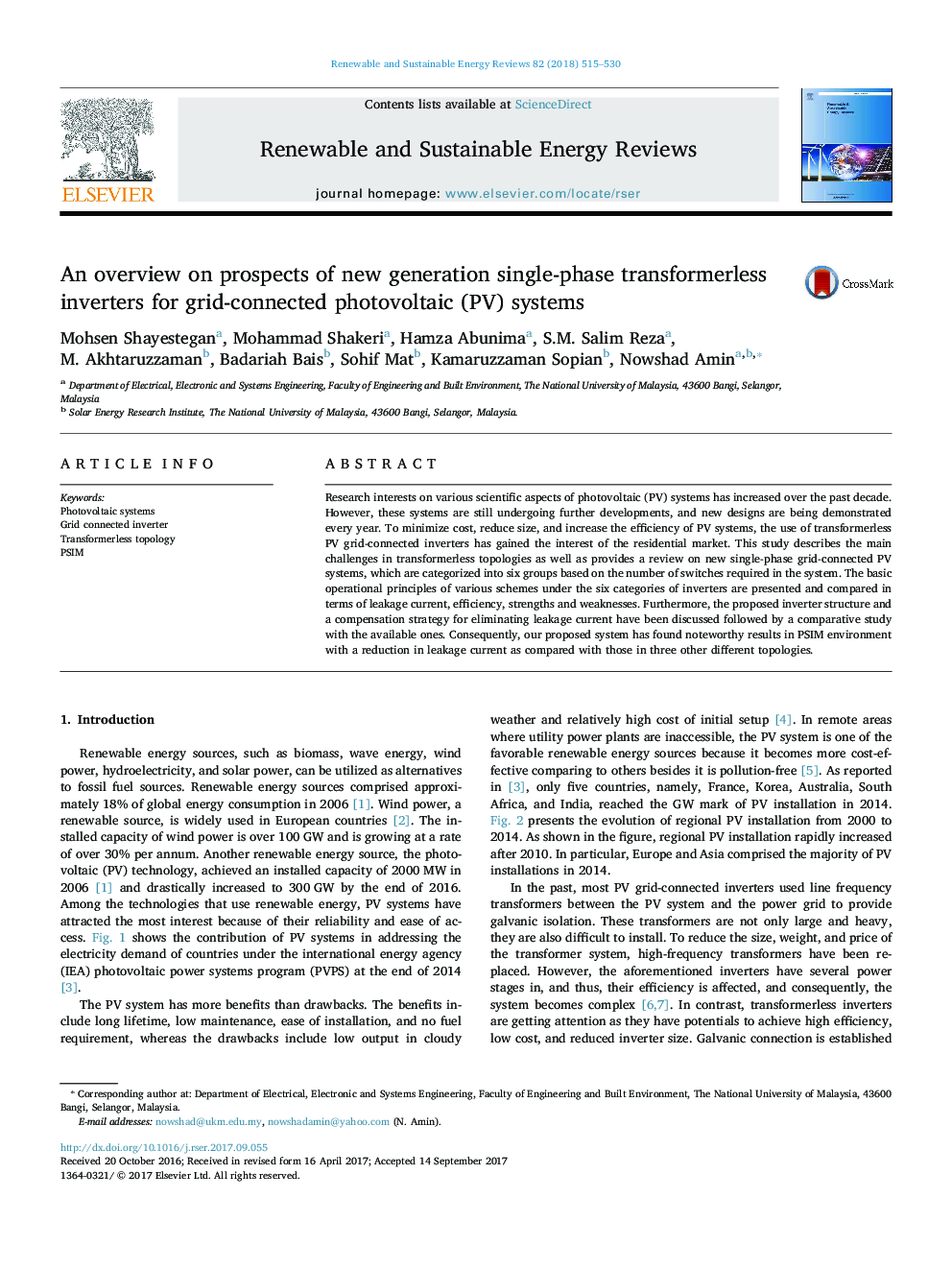| Article ID | Journal | Published Year | Pages | File Type |
|---|---|---|---|---|
| 5481886 | Renewable and Sustainable Energy Reviews | 2018 | 16 Pages |
Abstract
Research interests on various scientific aspects of photovoltaic (PV) systems has increased over the past decade. However, these systems are still undergoing further developments, and new designs are being demonstrated every year. To minimize cost, reduce size, and increase the efficiency of PV systems, the use of transformerless PV grid-connected inverters has gained the interest of the residential market. This study describes the main challenges in transformerless topologies as well as provides a review on new single-phase grid-connected PV systems, which are categorized into six groups based on the number of switches required in the system. The basic operational principles of various schemes under the six categories of inverters are presented and compared in terms of leakage current, efficiency, strengths and weaknesses. Furthermore, the proposed inverter structure and a compensation strategy for eliminating leakage current have been discussed followed by a comparative study with the available ones. Consequently, our proposed system has found noteworthy results in PSIM environment with a reduction in leakage current as compared with those in three other different topologies.
Related Topics
Physical Sciences and Engineering
Energy
Renewable Energy, Sustainability and the Environment
Authors
Mohsen Shayestegan, Mohammad Shakeri, Hamza Abunima, S.M. Salim Reza, M. Akhtaruzzaman, Badariah Bais, Sohif Mat, Kamaruzzaman Sopian, Nowshad Amin,
